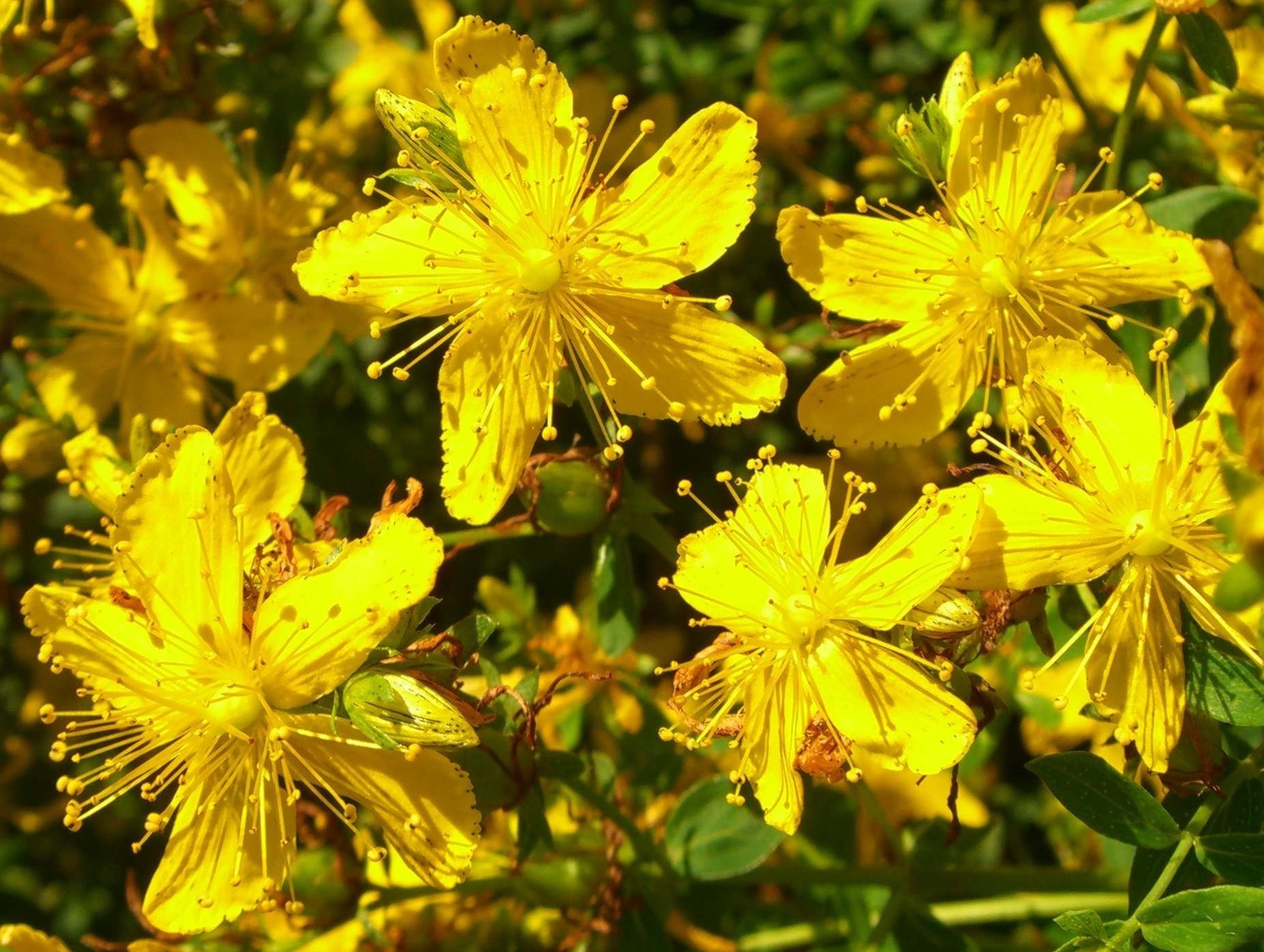Plants form an impressive diversity of natural products. The majority of biologically active compounds originate from secondary (specialized) metabolism. Elucidation of biosynthetic pathways and their regulation provides the basis for targeted metabolic modification and approaches of synthetic biology. The goal is to reconstruct plant biosynthetic pathways in engineered microbes for increased product yields. The methods used include transcriptomics, bioinformatics, metabolic engineering and synthetic biology.
Our focus is on biosynthesis of polyketide derivatives. Acylphloroglucinol metabolism provides a number of polyprenylated polycyclic compounds (PPAP), which are pharmacologically active and difficult to synthesize. These constituents are widely spread in Hypericum species. Another class of polyketides, biphenyl derivatives, are inducible defence compounds (phytoalexins) of valuable fruit trees, such as apple and pear. They play roles in protection from diseases, e.g. fire blight and replant disease. Thus, all these polyketide derivatives are interesting compounds for biotechnological research.
 Prof. Dr. Ludger Beerhues/TU Braunschweig
Prof. Dr. Ludger Beerhues/TU BraunschweigVacancies of TU Braunschweig
Career Service' Job Exchange
Merchandising
Term Dates
Courses
Degree Programmes
Information for Freshman
TUCard
Technische Universität Braunschweig
Universitätsplatz 2
38106 Braunschweig
P. O. Box: 38092 Braunschweig
GERMANY
Phone: +49 (0) 531 391-0

